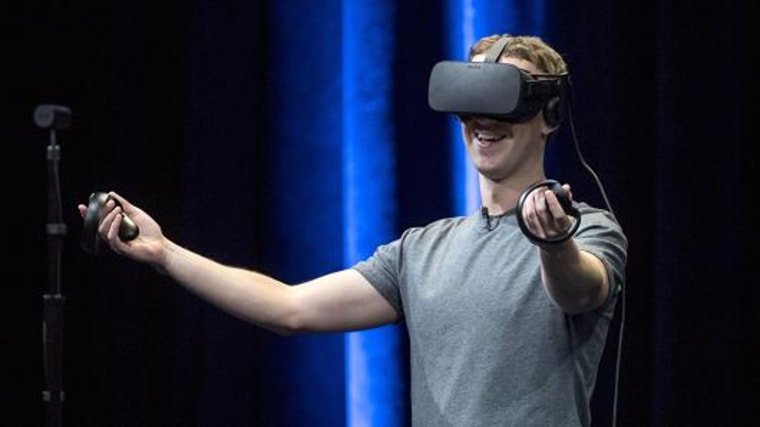Facebook's acquisition of Oculus was vetted in a matter of days, CEO Mark Zuckerberg revealed in testimony on Tuesday.
Amid pressure to leapfrog mobile phone giants Apple and Google, Facebook pushed to buy virtual reality firm Oculus "in a moment's notice," in 2014, emails revealed.
"You wanted to begin legal diligence on a Friday and sign the deal Monday?" an attorney asked Zuckerberg, and he confirmed.

But Zuckerberg said the deal was delayed, as they needed key people to sign up.
"We were having a lot of [conversations] on our side about whether this was the right thing to go forward and do," Zuckerberg said. "$2 billion is a lot of money ... this was a real big strategy investment ... it was a big and contentious discussion.... until the end we weren't certain."
He also revealed that the company actually paid $3 billion to buy Oculus, saying that Facebook paid an additional $700 million to retain employees and another $300 million earnout for hitting key milestones.
Emails between Zuckerberg and Facebook's deal maker, shown in court, revealed that the pair discussed the risk of doing the deal over the weekend, noting that some of the things that Oculus told Facebook "were simply not true."
Zuckerberg said that he shopped around and that "we decided that by far this was the best team out there and we wanted to move forward."
Related: Oculus Starts Shipping Its VR Headsets
Zuckerberg said he did not mention to the Facebook board the risk of doing the deal over the weekend. Andreessen Horowitz, led by Facebook board member Marc Andreessen, invested $37 million in Oculus, and the firm made $270 million on the transaction, according to the New York Times. Zuckerberg said at the trial that Andreessen recused himself from the deal, though he confirmed that Andreessen was the one who introduced Zuckerberg to the company.
Oculus, Facebook's second-largest acquisition, is now being sued on accusations that the company's founder and chief technology officer abused intellectual property from a company called ZeniMax.
The case centers around John Carmack, Oculus' chief technology officer and founder of a company owned by ZeniMax. ZeniMax alleges that the Oculus Rift was "primitive" until Carmack added numerous improvements to the headset prototype, alongside ZeniMax employees.
"Carmack made breakthrough modifications to the Rift prototype based upon years of prior research at ZeniMax," the legal complaint says.
On the stand, Zuckerberg said, "I am here because I believe [these accusations] are false and I think it's important to testify to that."
ZeniMax's lawyer Tony Sammi asked Zuckerberg to respond to claims that Carmack had code and more than 10,000 documents from before he left ZeniMax.
"No, I wasn't aware of that," Zuckerberg said. "It's something we should investigate."
Zuckerberg told the court he was unaware of whether Oculus founder Palmer Luckey signed a nondisclosure agreement with ZeniMax, nor did he know of one of Oculus' co-founders Nate Miller getting information from ZeniMax.
When asked why the lawsuit between ZeniMax and Oculus wasn't brought to his attention sooner, Zuckerberg said that "it is pretty common when you announce a big deal, all kinds of people come out of the woodwork and make claims."
The lawsuit alleges that Luckey formed Oculus just three days after a gaming convention where ZeniMax displayed the technology behind the Rift headset.
Oculus told CNBC it's eager to respond in court to the suit.
Sammi asked Zuckerberg, "If you steal my bike, paint it, put a bell on it, does that make it your bike?"
"No," Zuckerberg replied.